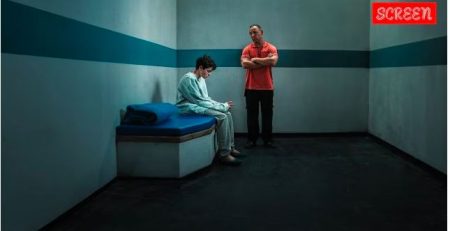Zindaginama review: A timely limited series
Share this post
Zindaginama tackles a set of mental health issues through six episodes, targeting a different one each time.
What happens when a human begins believing in an alt reality? Purple Duniya’s protagonist, a terrific Tanmay Dhanania, sets out ostensibly to go to work, like regular folks do. But that’s all a sham. His total focus lies in the game he plays obsessively, constantly, forgetting to eat or drink. Or communicate with his sister. Therapy can help, but to what extent? And who wins finally, man or machine? Sahaan Hattangadi writes, and co-directs with Danny Mamik.
Unresolved post-traumatic stress disorder, or PTSD, can cause serious problems. A young girl, having been mute witness to her mother’s misery, grows up into a woman who has difficulties with intimacy. In Bhanwar, written by Venkatesh A V and directed by Aditya Sarpotdar, Shweta Basu Prasad is effective as the young woman who comes to recognise where it all comes from, with some help from an understanding therapist.
Despite all the awareness and advocacy around the subject, gender dysphoria, or the distress a person undergoes when their gender identity is at odds with the gender assigned to them, still goes largely unacknowledged. Caged, written and directed by Danny Mamik and Sahaan Hattangadi, plays out through a mentor-mentee relationship, the former played by Sumeet Vyas, and the latter by Mohammad Samad. All-round acceptance, always the most difficult thing, is the first step, followed by, of course, finding yourself in a supportive environment.
Swagatam, written by Sukriti Tyagi, Ishaan Rai and Rahul Hota, and directed by Tyagi, looks at how debilitating schizophrenia can be in terms of being able to live independently. Shreyas Talpade and Anjali Patil are instantly believable as a couple struggling to keep it together, him being dropped off by her at the ‘centre’ where he spends the day before going off to work in a garment factory run by a vile supervisor. Here again, we encounter people who are unsympathetic, as well as those who learn, and that’s the kind of mix we live with, in our larger societies.
The Daily Puppet Show is about a young woman who gets overwhelmed by her emotions, and has a hard time controlling them. Who are the kind of people who have panic attacks? And what can be done to keep things in check? Kindness, understanding and people who commit to standing by you can help those who suffer thus lead ‘normal’ lives. Written by Malika Kumar, directed by Rakhi Sandilya, and enacted by Shivani Raghuvanshi, Sayandeep Sengupta, Veenah Nair and Sharvari Deshpande.
Anorexia is an eating disorder in which a person can go to the extent of starving themselves to the point of invisibility. As is usually the case with these ‘disorders’, the cause, such as there is, can be found in childhood traumas: in One Plus One, Prajakta Koli, Yashaswini Dayama, and Lillete Dubey play a family dealing with the very late discovery of the former’s inability to ingest anything. As a young girl, Koli’s character struggles to fit into clothes, and while not exactly plump, that inability becomes a wound. Written by Malika Kumar and directed by Mitakshara Kumar.
Also Read | Vicky Vidya Ka Voh Wala Video movie review: Rajkummar Rao-Triptii Dimri’s sluggish film relies on too many cheap jokes
The limited series, which has begun streaming coinciding with Mental Health Week, comes at a perfect juncture. Not all six are equal in depth and complexity, but it doesn’t stop us from acknowledging the importance of these kinds of stories, which go a long way in keeping informed conversations around mental health in play. Stories about lived experiences, which these appear to be, are great stigma-breakers: people are different, and will always be. Sameness would be so dull, no?












Leave a Reply